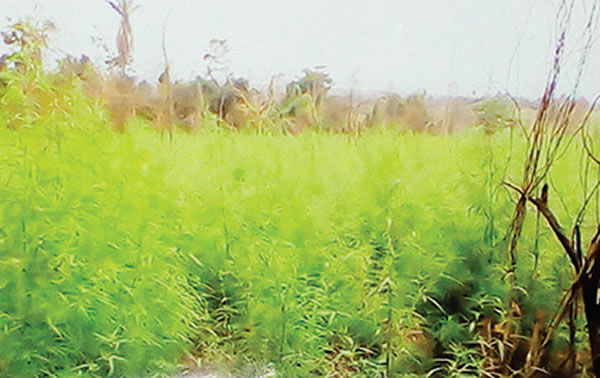Why Cannabis Use In US, UK, Others Differs From Nigeria’s – NDLEA
The National Drug Law Enforcement Agency (NDLEA) has defended the criminalisation of marijuana use in Nigeria as opposed to other countries such as the United States, United Kingdom, and Canada.
The Secretary of the NDLEA, Shadrach Haruna, while appearing on Channels Television’s Sunrise Daily on Wednesday shed light on the disparities in cannabis regulations between Nigeria and countries.
He addressed the prevalent “misconception” surrounding drug decriminalisation and emphasised that while other nations have decriminalised marijuana, there are crucial distinctions in the types of cannabis cultivated worldwide and the stringent policies, enforcement measures, and quality standards implemented by those countries.
READ ALSO: NDLEA Discovers Four Cannabis Farms In Bauchi, Arrests 372 Drug Dealers
“You travel to Canada, you travel anywhere, and you say, ‘They’ve decriminalised marijuana or cannabis and we’re using it’.
“But of course, you have different species of marijuana and in those countries, they have very good policies; very good enforcement and measurement standards that they have to follow,” he said.
Haruna explained that the decriminalised species in countries like Canada are those lacking Tetrahydrocannabinol, the psychoactive component responsible for altering one’s state of mind.
In contrast, Nigeria cultivates cannabis strains with significantly higher potency, containing THC levels ranging from almost 45 per cent to 100 per cent, making them incomparable to the decriminalised variants.
He said, “The species they have, which they say they have decriminalised in some of those countries, are those without Tetrahydrocannabinol, which is the active ingredient that makes one to be something else.
“We have cannabis that is far, far more potent, almost 45 per cent, 100 per tetrahydrocannabinol. We can’t compare it to what they’re saying they have decriminalised.”
Haruna, however, highlighted the strict enforcement practices in countries that have decriminalised marijuana, countering the notion that many nations, including the US and the UK, have explicitly decriminalised such drugs.
Regarding the UK, Haruna mentioned that cannabinol, a constituent used in specific medical treatments, was previously permitted for importation. However, recent restrictions have been imposed due to the increasing cannabinol content detected in the oil.
“But of late, they have also restricted it because they’ve noticed the increasing content of cannabinol in that particular oil,” he said.


